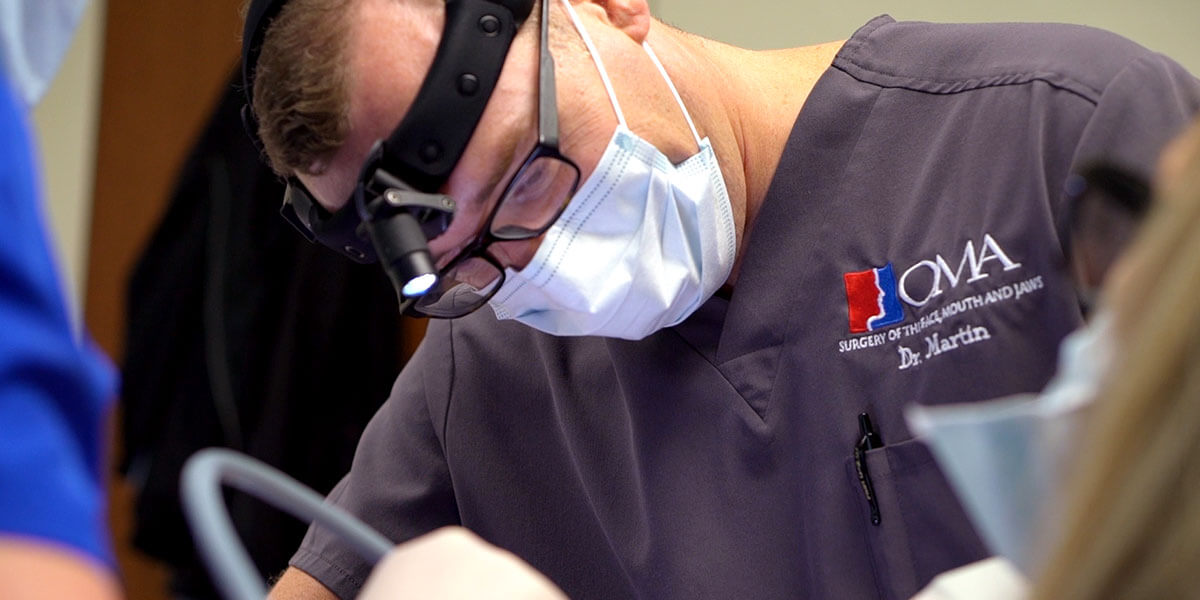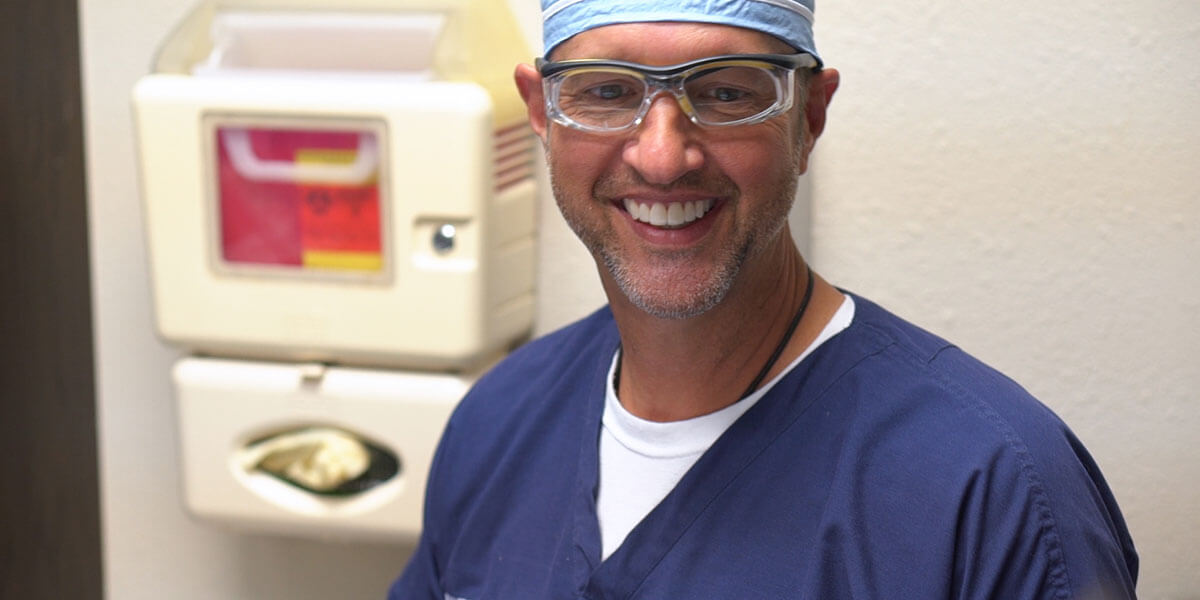Oral and Maxillofacial Surgery Procedures
Wisdom Teeth
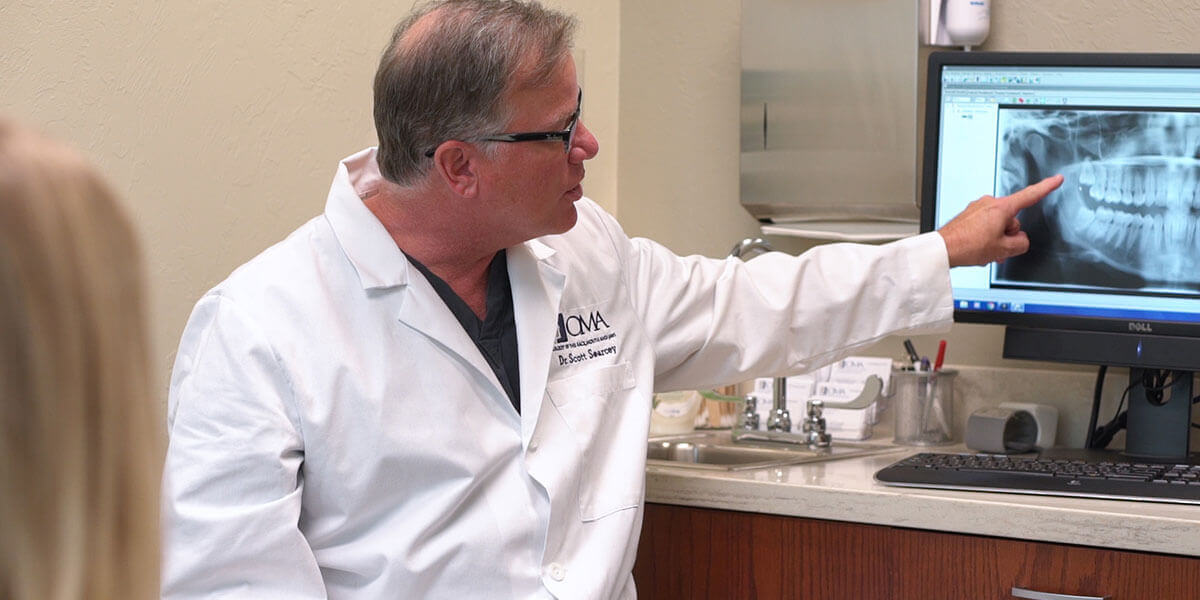
At Oral & Maxillofacial Surgery, wisdom teeth removal is one of the most common procedures we perform. Also known as third molars, wisdom teeth are the last teeth to develop, usually appearing between the ages of 17 and 25.
Dental Implants
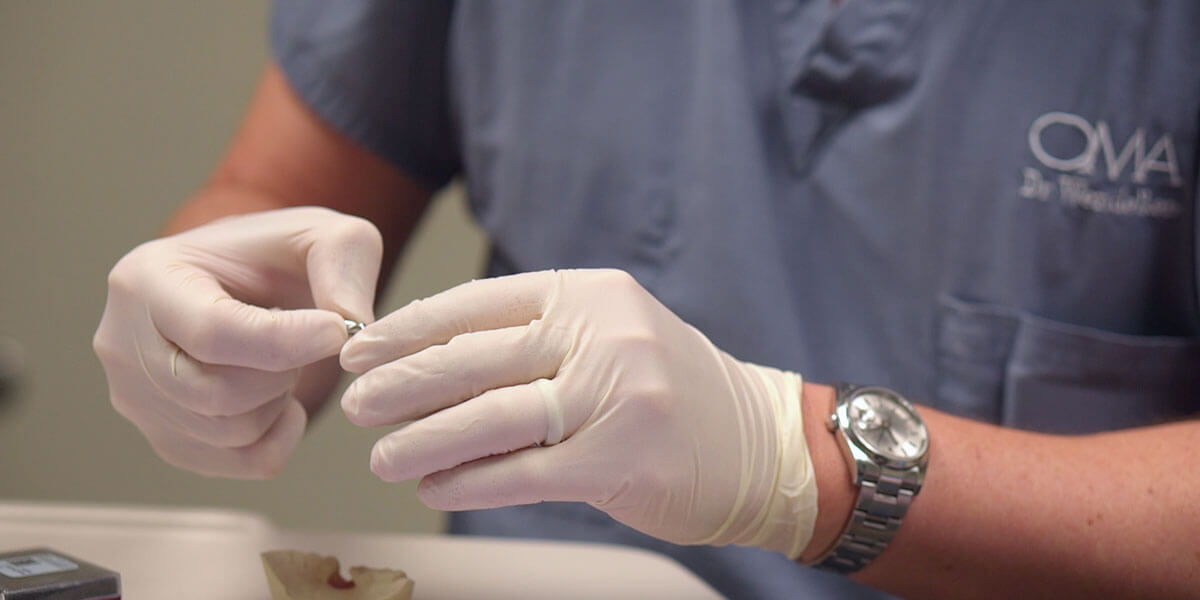
A strong foundation for fixed or removable replacement teeth for missing teeth, Dental Implants are small anchors that are made of biocompatible metal, dental implant anchors are placed in the jawbone and begin to fuse with the bone over a few months. Once the fusing process is complete, abutment posts can be placed for the attachment of the replacement teeth.
Full-arch restoration Treatment Procedure
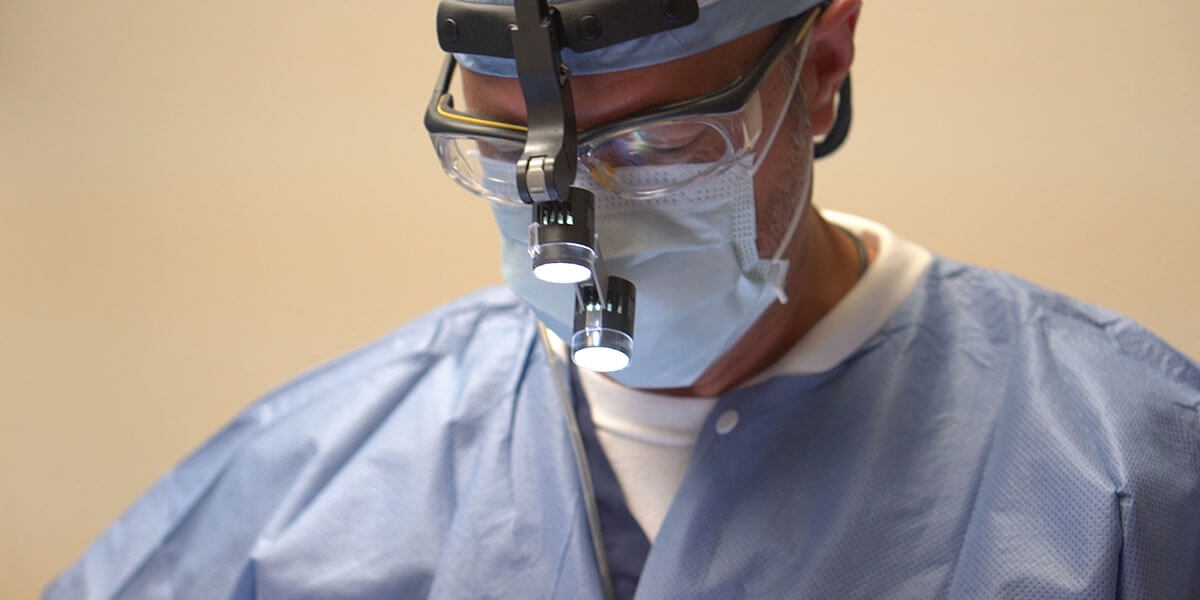
The Full-arch Restoration Treatment Procedure is a unique implant solution that allows patients who are missing all of their upper or lower teeth to replace a full arch of teeth using only 4 implants as “anchors” for the full restoration. This technique offers many advantages over traditional dentures.
Dental and Soft Tissue Surgery
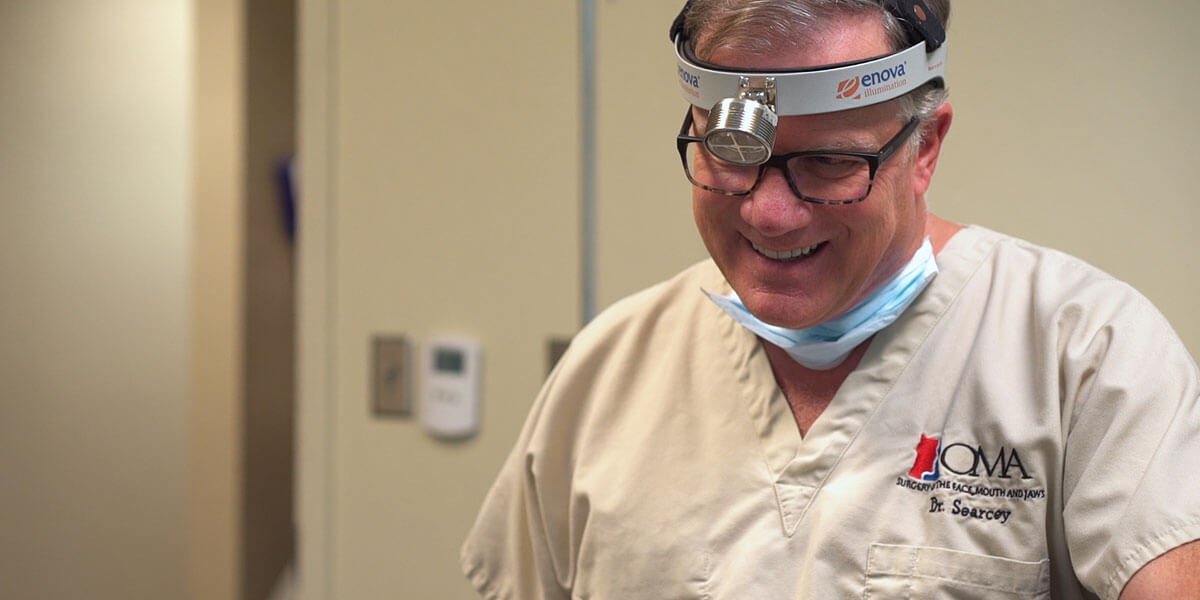
Dental and Soft Tissue Surgery involves simple procedures, such as simple extractions, to much more complex procedures. Often, a combination of procedures requiring extraction, modification to the bone, and/or modification of the gum tissue surrounding the surgical site are included.
Corrective Jaw Surgery
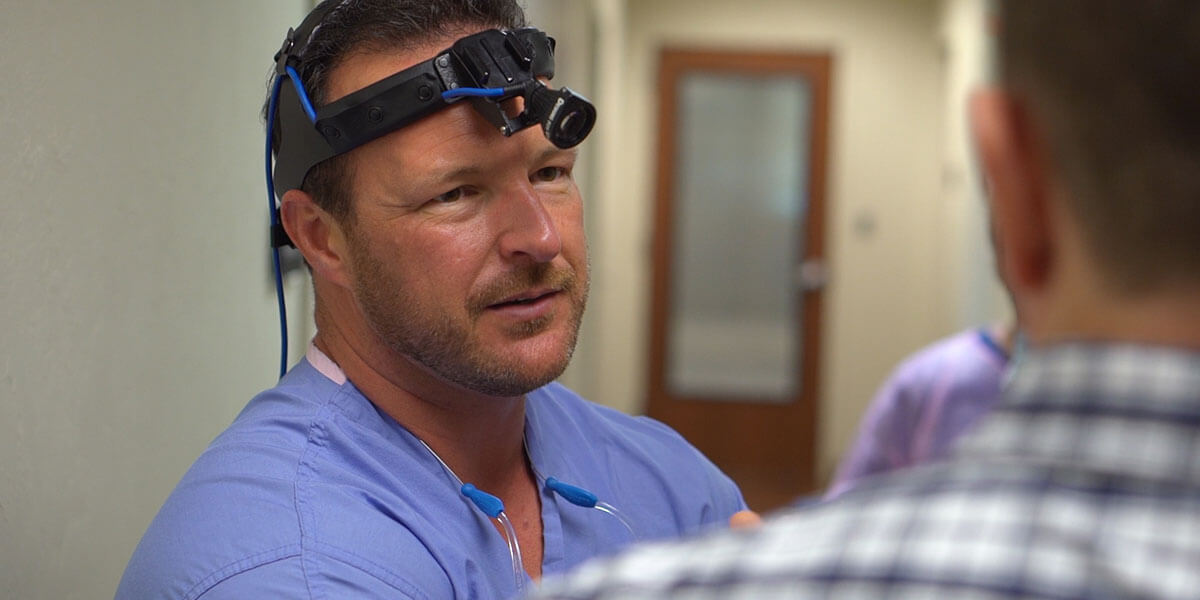
We work closely with your orthodontist to give you the best treatment plan, not just a cookbook approach. Not everyone needs jaw surgery and we can sometimes work with an orthodontist for other treatment plans. We work as a team and you always have 2 surgeons, 4 hands working on these cases.
Anesthesia
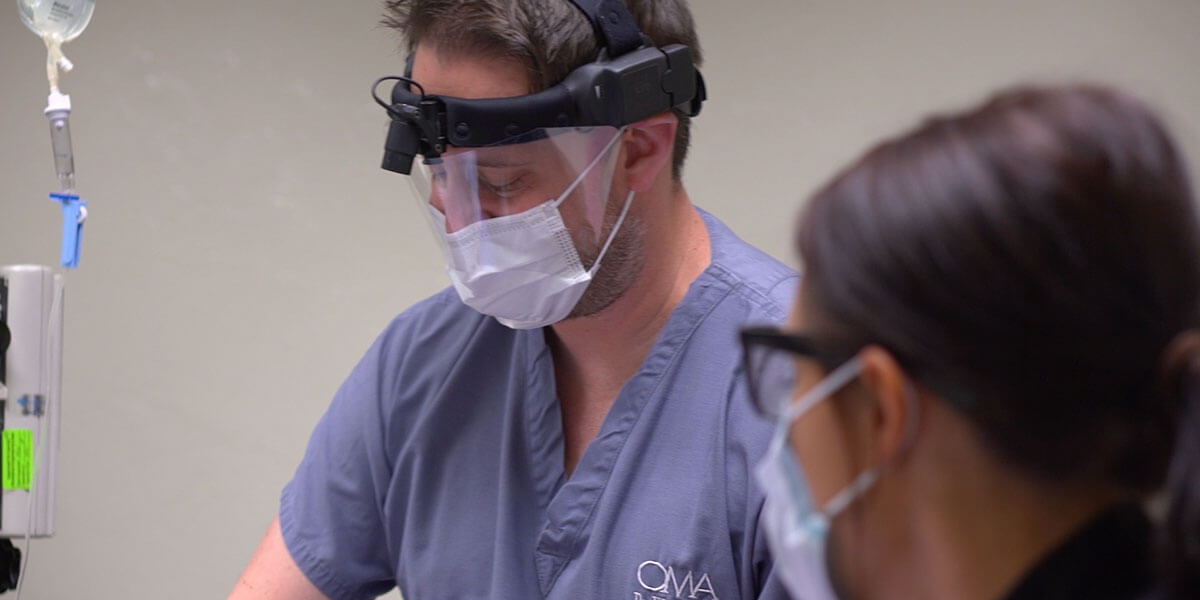
At OMA, we offer a variety of in-office anesthesia options for our patient's comfort and convenience. Surgical patients, patients with high levels of anxiety, or patients with special needs may benefit from the use of anesthesia.
Our experienced team is highly trained in the administration of anesthesia and is happy to answer your questions.
Additional Oral Surgery Procedures
Frequently Asked Questions About Oral & Maxillofacial Surgery
What is an Oral and Maxillofacial Surgeon (OMS)?
An oral and maxillofacial surgeon is a specialist in the treatment of disease problems associated with the face, mouth, and jaws. The type of problems that we see may be as simple as tooth extraction or as complicated as jaw fractures and reconstructive or tumor surgery. Educational requirements include graduation from dental school and completion of an approved internship and residency training program which is typically University and hospital-based. Additional training sets an oral and maxillofacial surgeon apart from the rest of the dental field.
What is Board Certification and are our doctors Board Certified?
Board Certification is the highest level of academic achievement that an oral surgeon can achieve. It is not a requirement to practice oral surgery however, those individuals who are board certified have demonstrated their capabilities and desires to obtain this level of achievement. To become board certified, an applicant must have completed an approved internship and residency training program, applied to the board and been accepted (board eligible), and complete multiple exams. All of the surgeons at OMA are board-certified. Many hospitals and insurance plans are now requiring board certification to participate as a provider.
I don’t like going to the dentist. How can you make this process easier?
OMA has been in practice for 30 years taking care of Oklahomans and people from around the world. Our goal is to not only provide you with a safe experience, but also a very comfortable one. Our staff is trained to help you through this sometimes scary process in the best way possible. Our team will discuss multiple anesthesia options, but most of our patients choose to go to sleep for the procedure.

